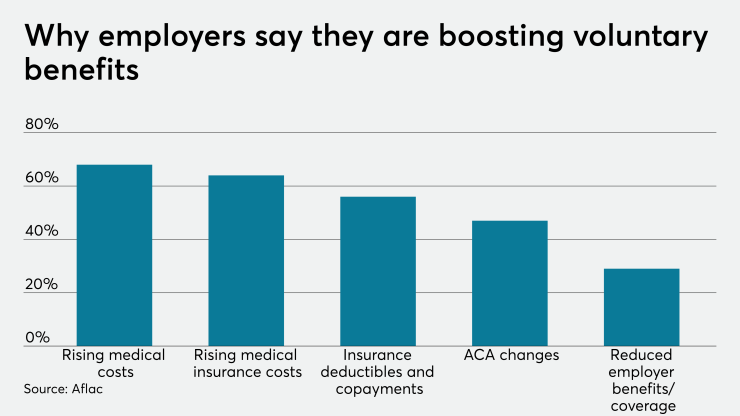Employees find their finances daunting and may not be investing in benefits, such as life insurance, that can help protect their money.
According to a new survey from supplemental insurance provider Unum, 38% of adults would rate their ability to manage their finances as average, poor or very poor. In addition, 40% say that they don’t have or know if they have a life insurance policy.
Matt Purintgon, assistant vice president of product and market development at Unum, says employees often don’t understand various types of insurance coverage and how they may be able to benefit from them.
“Even when the economy is performing well, many adults don’t spend their money wisely or adequately plan for a strong financial future,” Purintgon says. “Some people also have a natural aversion to confronting their mortality — which is understandable — but it’s an important part of financial planning.”
See also:
Nearly half of U.S. households are underinsured, with an average coverage gap of $200,000, according to life insurance industry group LIMRA.
But benefit advisers may be able to close this gap by educating workers on good uses for these offerings. Start by explaining the reasons for buying life insurance, for example, to help with end-of-life expenses, protect income, save for future education expenses or help with paying off debt. Brokers should also explain the main life stages where these benefits may be most helpful, he adds.
“Brokers should help normalize the conversation around financial wellness and encourage their HR counterparts to continue to conversation year-round for better awareness, understanding and confidence in their benefits,” he says.
See also:
In general, clients are thinking more critically about helping employees improve their financial wellness, Purintgon says. There are impacts beyond workers pocketbooks that employers need to consider.
“Financial stress can have physical and emotional side effects, which negatively impact employee engagement and performance,” he says. “The more financially sound employees are, the more space they have to focus.”






